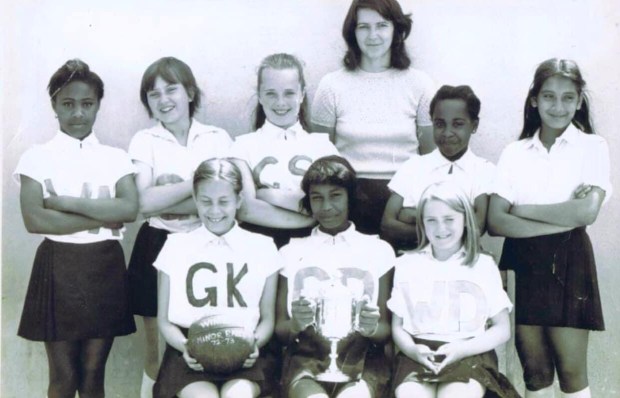By Jennifer Valentine-Miller
My name is Jennifer Valentine-Miller, I attended a senior Comprehensive Catholic school during the 1970’s to early 1980’s. The tests one endured during that time were a detriment to good education. Many conversations at school-reunions constantly feedback the same message “our school let us down”, and #Faithschool students were not exempt from this conversation. The purpose of Catholic schools was to focus on faith, working to form the whole child academically, physically, intellectually, spiritually, emotionally, and socially. The Church of England has said that the Catholic school is committed to the development of the whole person since in Christ, the Perfect Person, all human values find their fulfilment and unity. Catholic schools, RE religious education at their core, exist to help parents, the priest and teachers to hand on the blessings of Faith in its fulness to a new generation; so that they may come to understand the richness of Catholicism and therefore be drawn into a deeper communion with Christ and his Church. This is combined with a selection procedure that does not select its intake based on academic achievement or aptitude, in contrast to the selective school system. Their admission is restricted and based on selection criteria.
At school I also obtained attainment/pass certificates in for example Religious Studies and Social Ethics. In the long term those studies were not relevant when applying for jobs – unless I wanted to enter a vocation like social work. There were, to my happiness, theater studies and sports activities which I was encouraged to partake in because it was part of my school’s curriculum. I attended drama classes and obtained O/A level pass rates plus there were netball tournaments and tennis matches – my Head of School would only exclaim those outside activities were a “distraction” and affecting my other exams. Especially Mathematics and biology (so that I could get a job in a bank or as a nurse). Distractions also included my Duke of Edinburgh awards (in Gymnastics)!
That is why I aimed to salvage a BA Hons degree and other Higher Education qualifications as a mature student. However, I always felt a sense of disapproval at interviews. Should I blame my school for my disillusionment?
Campaign groups like “No More Faith School UK” are asking for public funding towards religious groups for them to evangelize to children who are disillusioned when they leave school having completed their time as Lower 6 or Upper 6 students.
It seems, according to reports, that Faith schools are having a “negative impact on social cohesion, foster segregation of children on social, ethnic and religious lines, and undermine choice and equality” according to online reports via No-more-faithschools.org. In other words, the report is saying if you attended a faith school it does not look good on your CV to the “outside world”. The anti-report goes on to say that “children living in England deserve the best – the law expects schools to demonstrate that they are encouraging pupils to take a respectful and tolerant stance towards those who hold values different from their own”. Ofsted’s role is to act robustly and impartially to ensure all children in England receive a good education.
Following on from ongoing claims of sexual exploitation within schools – inspectors found leaders “have not ensured that safeguarding procedures have been sufficiently robust to keep pupils safe at all times,”. Also, school’s leaders have not ensured that all staff employed at the school has routinely undergone the necessary vetting checks, which compromises pupils’ welfare”. (Secularism.org.uk 2019)
The charity Child Net insists that the importance of Faith Schools lies in it being able to opt-out of teaching subjects contrary to their religious beliefs, such as information on homosexuality and contraception. The compulsory parts of sex and relationship education from Year 7 (primary school) teach children about reproduction, sexuality, and sexual health – including decisions around abortion.
Campaigners insist that pupils from faith schools fail to develop their own beliefs independently. I have no qualms with that. My argument is to support their pupils with after care, especially those who like religious studies, social ethics, theatrical-studies, and… Physical Sciences or in my era it was called P.E. (physical education).
Today, senior leaders preclude the teaching of certain protected characteristics of students leaving school could be defined in the Equality Act. According to the Equality Act 2010, protected characteristics are aspects of a person’s identity that make them who they are. It’s worth noting, while this legislation doesn’t offer protection for revealing protected characteristic e.g., religious beliefs. Although it is unlawful to treat an employee or apprentice differently if they reveal they attended a Faith school – alas, it still happens.

